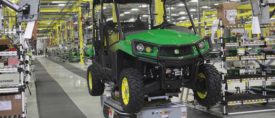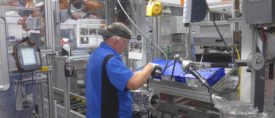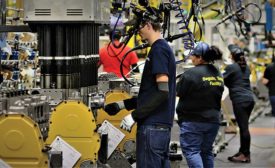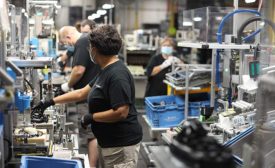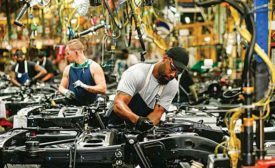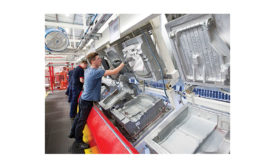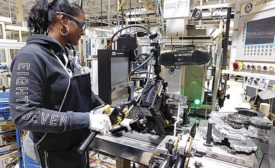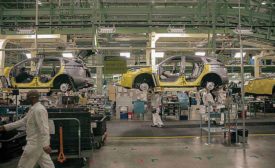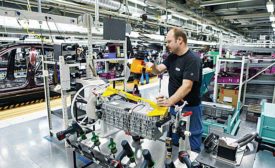Special Reports
With the pandemic subsiding and consumer spending on the rise, manufacturers are investing in their assembly operations.
Read More
2021 Assembly Plant of the Year: GKN Drives Transformation With New Culture, Processes and Tools
A two-year-long continuous improvement initiative pays off in Newton, NC.
October 13, 2021
2020 Capital Spending Survey: Cautious Optimism
With a new presidential administration and an end to COVID in sight, manufacturers are ready to invest in their assembly lines.
December 4, 2020
2020 Assembly Plant of the Year: There’s No Looking Back at Murakami
The Campbellsville, KY, plant excels at continuous improvement and workforce development
October 6, 2020
ASSEMBLY Capital Spending Report 2019: Manufacturers Continue to Invest in Technology
Despite some headwinds, manufacturers will continue to invest in assembly technology
December 9, 2019
2019 Assembly Plant of the Year: Refrigerator Production Heats Up at GE Appliances
Lean manufacturing and vertical integration thrive in Decatur, AL.
October 1, 2019
ASSEMBLY Capital Spending Report 2018: Spending Increases due to Economic Growth and Tax-Cuts
Spurred by tax cuts and economic growth, manufacturers will continue to invest in their assembly operations.
December 6, 2018
2018 Assembly Plant of the Year: Ford Shifts Flexible Assembly Into High Gear
The Van Dyke transmission plant excels at high-volume, high-mix production.
October 2, 2018
State of the Profession 2018: Smart Factories Demand Smarter Engineers
Staying ahead of the curve is more important than ever
July 9, 2018
ASSEMBLY Capital Spending Report 2017: Capital Spending Continues to Increase
With the economy firing on all cylinders, our annual Capital Equipment Spending Survey predicts continued growth in investment.
December 1, 2017
Never miss the latest news and trends driving the manufacturing industry
Stay in the know on the latest assembly trends.
JOIN TODAY!Copyright ©2025. All Rights Reserved BNP Media.
Design, CMS, Hosting & Web Development :: ePublishing
